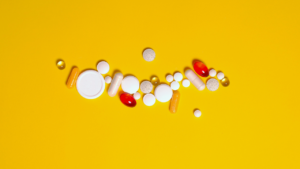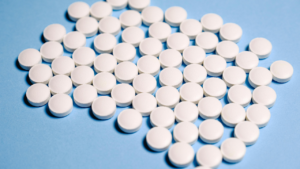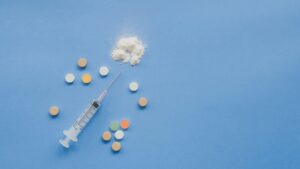Caffeine, a stimulant found naturally in coffee, tea, and cacao plants, is the most widely consumed psychoactive substance worldwide. While moderate caffeine consumption is generally safe and may even offer some health benefits, excessive intake can lead to negative effects on your physical and mental well-being. In this article, we’ll explore what caffeine is, how it affects your body, and strategies to manage your consumption for optimal health.
Understanding Caffeine
Caffeine is a central nervous system stimulant that works by blocking the action of adenosine, a neurotransmitter that promotes sleep and relaxation. When caffeine binds to adenosine receptors in the brain, it increases alertness, reduces fatigue, and enhances cognitive performance. Caffeine is quickly absorbed into the bloodstream, with effects typically felt within 15-45 minutes of consumption and lasting for several hours.

Sources of Caffeine
Caffeine is found in various foods, beverages, and even some medications. The most common sources include:
- Coffee: A single 8-ounce cup of coffee contains about 95mg of caffeine.
- Tea: Black tea contains about 47mg of caffeine per 8-ounce serving, while green tea has about 28mg.
- Soft drinks: A 12-ounce can of cola contains about 29mg of caffeine.
- Energy drinks: Caffeine content varies widely, but a typical 16-ounce energy drink can contain up to 160mg.
- Chocolate: An ounce of dark chocolate contains about 12mg of caffeine, while milk chocolate has about 9mg.
Effects of Excessive Consumption
While moderate caffeine intake (up to 400mg per day for adults) is generally safe, excessive consumption can lead to several negative effects:
- Sleep disruption: Consuming caffeine, especially in the afternoon or evening, can interfere with your body’s natural sleep-wake cycle, leading to insomnia and poor sleep quality.
- Increased anxiety: High doses of caffeine can exacerbate anxiety symptoms and even trigger panic attacks in some individuals.
- Digestive issues: Caffeine can stimulate the production of stomach acid, leading to heartburn, acid reflux, and other digestive problems.
- Dependence: Regular caffeine consumption can lead to physical dependence, resulting in withdrawal symptoms such as headaches, fatigue, and irritability when intake is reduced or stopped.
Strategies to Manage Caffeine Consumption
- Set limits: Establish a daily caffeine limit and stick to it. The FDA recommends no more than 400mg of caffeine per day for adults.
- Be mindful of timing: Avoid consuming caffeine in the afternoon or evening to minimize sleep disruption. Aim to have your last caffeinated beverage at least 6 hours before bedtime.
- Choose quality over quantity: Opt for high-quality, organic coffee or tea instead of energy drinks or sugary caffeinated beverages.
- Stay hydrated: Drink plenty of water throughout the day to counteract caffeine’s diuretic effects and maintain optimal hydration.
- Find alternative energy sources: Incorporate regular exercise, a balanced diet, and stress management techniques into your daily routine to boost energy levels naturally.

When to Seek Help for Substance Use Disorders
While caffeine consumption can be managed through lifestyle changes, more serious substance use disorders, such as alcohol or drug addiction, may require professional intervention. The Bluffs Addiction Campuses, based in Ohio, offer comprehensive treatment programs for individuals struggling with substance use disorders. If you or a loved one needs help, don’t hesitate to call The Bluffs at 330-919-9228.
Understanding caffeine’s effects on your body and implementing strategies to manage your consumption can help you maintain optimal health and well-being. Remember, while caffeine itself is not a serious addiction, excessive consumption can lead to negative outcomes. If you’re struggling with a more severe substance use disorder, know that help is available at The Bluffs Addiction Campuses.








